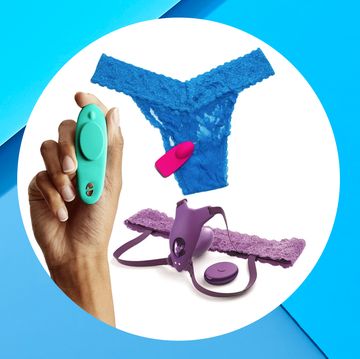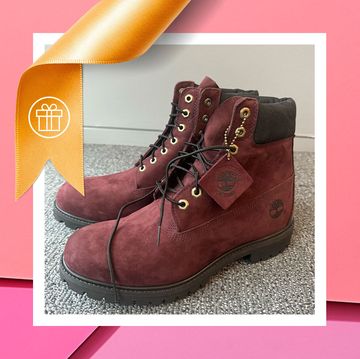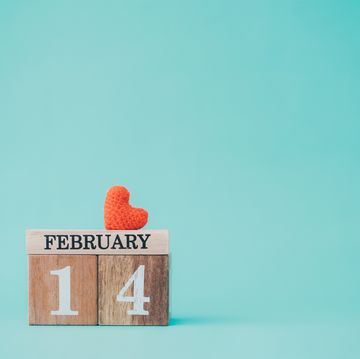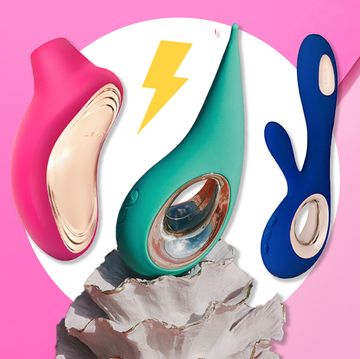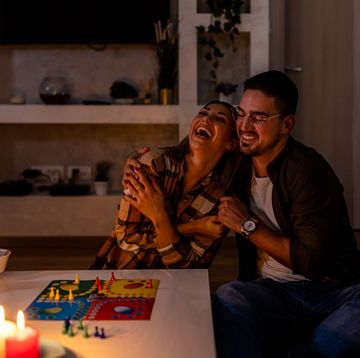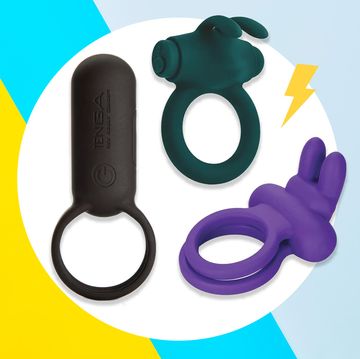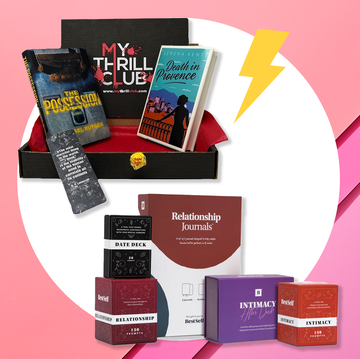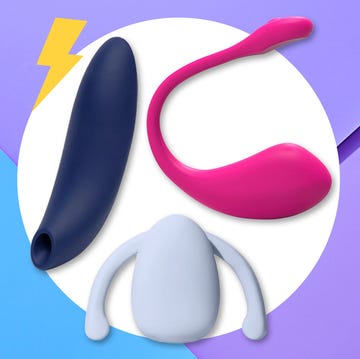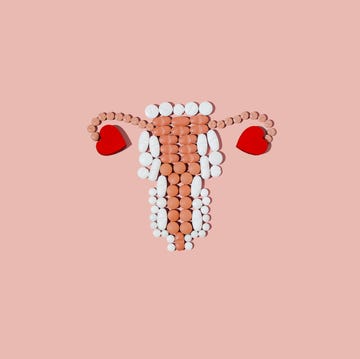Picture this: You've been spending a lot of time with someone very, very cute. The chemistry's there; you have fun together. You're texting non-stop, thinking of them when you're apart, and maybe, they've even made an appearance or two on your Instagram Story. Before you know it, you're asking the question that millions have asked before you: “So... what are we?”
Sound familiar? Maybe your current situationship comes to mind, or perhaps the person you’ve been FWB with since senior year of college. What about that cute airport crush who you just bantered with for five minutes while waiting to board? (Just kidding about that last one—kind of.)
But seriously, it’s a critical conversation to have, especially if you’re hoping to progress past uncertainty into a satisfying relationship. But in 2023, the “define the relationship” conversation is more confusing than ever before—so it makes sense that not everyone has the concept mastered.
Meet the experts: Lisa Concepcion is a certified life coach and founder of Love Quest Coaching. Maryanne Comaroto, PhD, is a San Francisco-based psychologist who specializes in relationships.
“People get so tripped up these days with ‘label aversion,’" says Lisa Concepcion, a certified life coach and founder of LoveQuestCoaching. “They tiptoe around one another, wondering if they’re dating, dating exclusively, or are in a relationship.”
Relationship ambiguity can be mind-boggling. It helps if you have a clear intention about your life and dating style, Concepcion says, so you can go into flings or relationships with clarity on what you’re looking for from it. Regardless of how you feel about putting a label on it, you want to be on the same page about what’s going on and the appropriate boundaries involved (like, dating-app usage and sex with other people).
If you’re confused about where you stand with a romantic partner or are nearing the “what are we?” stage of your courtship, no need to send up the SOS when you're trying to DTR. Here's everything you need to know about exclusive dating, including how long you should feel things out before asking about a label, how to have that conversation, and what to do if it goes wrong.
What does exclusive dating really mean?
“Simply put, dating exclusively means both people are only focused on one another. They’re not juggling other people,” Concepcion says.
When you're exclusively dating, your goal is to be committed to each other in a monogamous relationship, but you still want to test drive things a bit longer. It’s also a lot less pressure than throwing a label on things right away.
You’re continuing to get to know one another, and you're putting the same amount of time and energy into doing so, without distractions from any other potential suitors. After all, you gotta make sure the other person is okay with sleeping with the fan on or your strict reality TV schedule. The main thing is, you see potential, and are mutually willing to work toward a future to see if you're truly compatible.
This exclusive dating process often means your lives are becoming more entwined. Maybe you start hanging out with their friend group regularly on weekends, or you bookmark a funny meme to send them later because it reminded you of a shared experience.
You’ve likely lost interest in your work crush, and if a dating app is still on your phone, you haven't touched it in weeks. And when you make it onto their Instagram Story—or even more telling, their main feed—it’s a sign things are becoming exclusive.
All that said, exclusive dating does not mean that this person is your significant other. That role requires legit responsibilities and a shifting of priorities—namely, putting your bond together before other commitments, says Concepcion.
Oh, and while you're at it: Exclusive dating isn't something you want to assume or infer is happening. Even if you're ~so sure~ that you’re both only interested in each other, it’s still a good idea to have an actual (out-loud) conversation about it, when you’re comfortable. Trust your intuition, but know that hearing the words is way more reassuring.
Ah, okay. So how is that different from a relationship, again?
A monogamous relationship takes exclusivity a step further, when you can commit to a future with this person.
“When it shifts into a relationship, there’s a focus on the longer term,” Concepcion says. “There’s a desire to get on the same page about bigger life goals, such as living arrangements, finances, family, career goals, and anything requiring true partnership.”
Of course, these life elements take some time to build up to, as well. It’s not like you’ll be moving in on day one, but by the time you're in an established relationship with this person, it means you could see it down the line.
You also should feel more comfortable in your skin and willing to share more of yourself and your time with this person—since, you know, you've made a commitment to them.
When coupledom is on the horizon, it's likely bae starts asking you to spend way more nights over their place, even on (gasp) work nights, or (bigger gasp) wants you to meet their parents. And if this person becomes your first or second call for exciting personal news or crushing developments, that’s a sign that you might be ready to take the leap, says Concepcion.
Either way, at the end of the day, you need to verbally communicate what you want to the person you're dating, to see if they're on the same swoon-level page as you.
How long should you exclusively date before getting into a relationship?
Well, there’s no right or wrong way to do it, says Maryanne Comaroto, PhD, a relationship psychologist. Generally, though, she advises dating for about 90 days—give or take—depending on your situation.
“Ninety days is usually when you've had a chance to rupture and repair with someone, meaning you've run into some bumps,” she says. “You're kind of at the cusp of a little bit of the honeymoon phase, you've gotten to know who this person is, you see how they act with people in restaurants, and they've met a friend or two of yours.”
But Comaroto also believes that relationships are too complex with too many variables to guarantee that this specific amount of time will work for everyone, so you should feel empowered to begin making that transition into coupledom on your own timeline.
On the flip side, if you think your relationship is moving too fast, here are some signs to watch out for:
I think I'm ready—how do I make the transition from dating exclusively to being in a relationship?
Okay, it’s game time. So, how do you get from point A to point B?
“A lot of people are great at dating exclusively but then get a bit freaked out when a relationship goes deeper with a focus on merging lives,” Concepcion says. But the transition doesn't need to be scary: “It can be made through a spirit of curiosity and collaboration.” Translation: Open communication is key.
While at dinner or drinks, let them know how happy you've been with the way things are going, and—yes, this requires vulnerability—you think there's something real here. You can wait for them to respond before taking the convo deeper, but don't be afraid to express how you really feel about them and your connection.
You could also try a more casual approach: "Hey, I've been so happy with things lately that I've found myself gushing about you to my friends. But I don't know what I should be calling you—what do you think?"
Either way, as long as you're honest about what you want, you're that much closer to getting it.
Uh, scary! What if I'm not ready for "the talk"?
Rejection sucks. I know. But take it from an expert: the strongest thing you can do is claim your power when it comes to dating, says Concepcion.
You deserve to get what you want and need out of a relationship, especially since it’s something that's taking up so much emotional energy. “The most self-loving thing anyone can do is communicate where they are in life and what they want,” Concepcion says.
So even if the thought of taking the next step toward love with another person scares the bejesus out of you, at least you'll be showering yourself in the type of affection that matters most: yours.
What should I do if the DTR convo goes wrong?
Oof. Sometimes ~the talk~ doesn't go the way you planned—maybe the person you’re in a situationship with isn’t so comfortable with an official title, or they're just not ready to make a romantic commitment.
If they’re starting to shut down mid-convo, the first step is to think about what you want and what’s true for you. “We need to not climb out of ourselves when we feel like someone's reacting to our truth in some way that goes against what we are wanting,” says Comaroto. She advises taking a beat and asking yourself questions like: Where is my heart? What’s true for me?
After that, she recommends responding rather than reacting through “reflective communication.” That might look like repeating what you heard them say back to them, which could be something along the lines of: “It sounds like you're not ready for this right now. I hear that, and I honor that, and I respect that, and I appreciate you making space for what's true for me. Why don’t we revisit this later?” That way, they won’t necessarily feel scared or turned off by the conversation—they’ll know that you are listening.
While it may—pardon my French—flat-out suck to have the conversation not go the way you wanted, it’s important to have the tools to respond and ensure that both parties feel understood.
Once you’ve given your companion some space, bring the convo back, asking other clarifying questions about your future: Do we want to see other people in addition to each other? Do we need to slow down? Do you need some time to figure out what you want?
However, at some point, it may be time to move on. “People need to be true to themselves and remember that they're the prize,” Comaroto says. “When we lean too far out of ourselves and wanting something from someone that they don't want, there's gotta be a way that we can tolerate this kind of truth and honor. Honor the other person, but honor yourself.”
You should also consider what you're looking for, she advises. Is it a steady partnership? Marriage? Kids (eventually)? If you’re chasing a long-term relationship goal, it might not even be about the person anymore—so you really need to consider if you are their person. If you weigh that question carefully, you’ll know if it’s time to move on or not. “There are things you need to have in place before you're even in a conversation around commitment, because usually those two things go hand in hand,” Comaroto adds.
Addison Aloian (she/her) is the assistant love & life editor at Women’s Health. Outside of topics related to lifestyle, relationships, and dating, she also loves covering fitness and style. In her free time, she enjoys lifting weights at the gym, reading mystery and romance novels, watching (and critiquing!) the latest movies that have garnered Oscars buzz, and wandering around the West Village in New York City. In addition to Women's Health, her work has also appeared in Allure, StyleCaster, L'Officiel USA, V Magazine, VMAN, and more.



